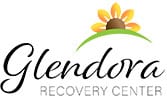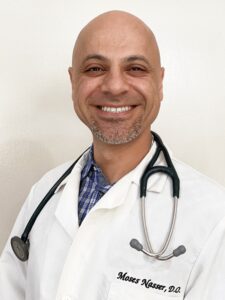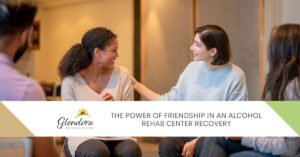Battling prescription opioid addiction is a challenging and complex issue that affects many individuals and their families. At Glendora Recovery Center, we understand the struggles of addiction and the importance of finding the right treatment for anyone battling this chronic disease. Our team of compassionate professionals is here to support and guide those ready to enter the recovery journey.
In this blog post, we will explore the unique approach that Glendora Recovery Center offers for prescription opioid addiction treatment. From understanding the challenges of dependence on opioids to providing long-lasting support for long-term recovery, we will delve into the most critical aspects of a successful addiction treatment program.
Detoxification from Prescription Opioids
The first step in any addiction treatment program is detoxification, which is the process of allowing the body to rid itself of opioids while managing the symptoms of withdrawal. This critical phase requires close supervision and medical care, as withdrawal symptoms can be very uncomfortable and even dangerous in some cases. At Glendora Recovery Center, we offer medically supervised detox to ensure our patients are safe. Our Program Options include both (PHP) Partial Hospitalization Programs and (OIP) Intensive Outpatient Programs.
Having the option to detox under medical supervision is vital to your health and wellbeing, and that is just the first step. Once the detoxification process is complete, the real work of addiction treatment begins. Our treatment approach is based on the understanding that addiction is a chronic and complex disease that requires a multi-disciplinary approach. Our team of professionals includes addiction specialists, therapists, and medical providers who work together to address the physical, mental, and emotional aspects of addiction.
Types of Medications for Opioid Addiction
Opioid addiction is a major health concern, and more people than ever are seeking treatment for opioid dependence. Fortunately, there are medications available to help people overcome their addiction. These medications work by blocking the effects of opioids in the brain and reducing cravings. The main types of medications used to treat prescription opioid addiction include methadone, buprenorphine, and naltrexone.
Methadone
Methadone is a synthetic opioid agonist that works by binding to the brain’s opioid receptors and blocking the effects of other opioids. It helps reduce cravings and withdrawal symptoms, making it easier for people to quit using opioids. However, methadone must be taken under medical supervision as it can be habit-forming if not taken as prescribed.
Buprenorphine
Buprenorphine is another synthetic opioid agonist that works in a similar way to methadone. It helps reduce cravings and withdrawal symptoms, but it has a lower risk of addiction and abuse. Naltrexone is an opioid antagonist that blocks the effects of opioids on the brain. Unlike methadone and buprenorphine, naltrexone does not produce an opioid-like effect. Instead, it helps prevent relapse by blocking the euphoric effects of opioids and reducing cravings.
Naltrexone
Naltrexone works by blocking the brain’s opioid receptors, preventing individuals from feeling the effects of opioids and reducing the cravings for opioids. Additionally, it can help reduce the risks of overdose and relapse. Naltrexone is most effective when combined with other treatments, such as counseling, therapy, and support groups. With continued use over an extended period of time, individuals may be able to achieve long-term remission from opioid addiction. It is also important for individuals taking naltrexone to be monitored closely by their doctor to ensure they are following the dosage instructions correctly and not experiencing any adverse effects from the medication.
These medications can be highly effective when used in combination with counseling and support services. They can help people overcome their addiction and stay on track to leading a healthier life. With the right help and support, people with opioid addiction can take back control of their lives.
The MAT Approach to Recovery
At Glendora Recovery Center, we offer a range of evidence-based treatments that have been proven effective in treating addiction to opioids. These include individual therapy, group therapy, family therapy, and medication-assisted treatment (MAT), which uses medications such as buprenorphine or methadone to help manage withdrawal symptoms and cravings. MAT can be beneficial in sustaining long-term recovery by reducing the risk of relapse.
One of the most important aspects of successful addiction treatment is the creation of a supportive and compassionate environment that encourages healing and growth. At Glendora Recovery Center, the therapeutic community is a powerful tool for addiction recovery. We create a sense of community among our patients and provide opportunities for social support, during your process. There are plenty of amazing opportunities, ideas, and memories that lie ahead for you. Now is the time to walk forward towards a new life and a new you.
The Importance of a Holistic Approach to Treatment
Remember that this journey is a self care and growth journey just as much as it is a healthcare one. Now is the time to realize that there is an amazing person waiting to live their best life behind your addiction. We offer a range of aftercare services that help individuals transition back into their daily lives after completing treatment.
While monitored, detox, and prescription drugs are extremely helpful for your recovery journey, a holistic, well rounded approach is just as vital. This includes ongoing therapy, support groups, and other resources that can help prevent relapse and sustain recovery. By providing comprehensive care and support, we give our patients the tools and resources they need to build a fulfilling life in recovery.
Contact Glendora Recovery Center for a Compassionate Approach to Tackling Prescription Opioid Addiction
Prescription opioid addiction can be a difficult and challenging issue to overcome, but it is possible to find hope and healing through the right treatment approach. At Glendora Recovery Center, we are committed to providing compassionate and evidence-based addiction treatment that addresses the unique needs of each individual. From detoxification to aftercare, our approach is designed to provide the tools and support necessary for long-lasting recovery. If you or a loved one is struggling with prescription opioid addiction, please reach out to our team to learn more about how we can help.






